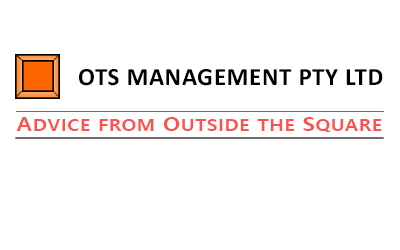As a business advisor and accountant, I am often asked what a small business needs to do in order to succeed.
It's a simple enough question but there are so many things small business owners need to know, need to be, and need to do in their businesses. So I asked a number of my most successful clients what they thought about the question, and, using my own experience gained over the last 30-plus years, I have collated the top 10 things that a small business needs to do to succeed.
1. Make sure that you are marketing effectively.
From experience, I cannot stress enough how important marketing is to the success of any small business.
The problem is that most small business owners are subject matter experts - they are good mechanics, good lawyers, good accountants, good toy retailers, good garment manufacturers - and this means that they try to make their business succeed by being good at what they do. Unfortunately, that is not enough.
A business succeeds only if it finds and continues to find customers. Some of these will come from word-of-mouth or reputation but the volume of these new customers will not be enough to grow your business. So, you need to market, and you need to market effectively.
Marketing is not just advertising. Not all marketing is effective. Effective marketing is about making your business and product known to as many people in your target market as possible in any way that provides a strong return in conversions and sales.
To market effectively, you need to know who is your target market, and therefore what are their likes, needs and concerns. You need to know how your product provides them with an attractive solution. And you need to know where and how to reach them so that they will listen.
2. Improve your cash flow
Cash is king, especially in a small business where you may not be capitalised to the extent that you need to be. This means that being cash flow positive is even more important than making a big profit.
Some of you reading this may have already experienced the heart-sinking feeling that, although your profit and loss account shows a healthy profit, you don't ever seem to have enough cash. That profit doesn't seem to translate into cash fast enough because it is represented by inventory sitting on your shelf or accounts receivable "in the mail", or a new piece of equipment you had to buy.
To be successful, small businesses need to know how to improve cash flow - getting your collection procedures set up efficiently, ensuring you "vet" your customers to ensure they can afford to pay on time, reducing cost while maintaining efficiency and productivity, finding greater margins, planning ahead, choosing appropriate payment plans, and so on.
3. Understand your numbers and your KPI's (Key Performance Indicators)
Many small business owners, being subject matter experts, tend to leave supporting skills to others. The most obvious example of this is where they hire an accountant and leave the books and records to them.
While this is understandable, it also means that the owner loses touch with the financial performance of their business, and is unable to react quickly to financial indicators.
You can delegate the financial functions of your business, but you cannot abrogate your responsibility as the owner to understand the results.
Small business owners must stay in touch with their financial functions by understanding exactly what their accountant does, and what information can be provided from the results of that work. For example, as they complete records on accounts receivable, can you take from that work information about who is paying, who is late in paying, and what the trend is overall? As they complete the payroll, can you find out about staff productivity?
Make sure you understand your numbers in a timely fashion - ask for reports every week or month, and a discussion about what they mean to the performance of your business. Understand some KPI's and watch how they perform.
KPI's are certain numbers that mean success or failure for your particular business or industry. For example, in a low-margin business, the break-even point of sales is critical. For a mechanic, the hours worked (and paid) per vehicle could mean the difference between profit or loss.
4. Have a good accounting system
As a result of the above, it is logical that you need a good accounting system to get the information you need.
Again, this is something that small business owners tend to leave to their accountants. However, for the same reasons as above, you need to be involved in understanding how your accounting system works and whether it gives you the information you need.
Make sure that you ask for expert advice on this. You should ask your accountant what they recommend, based on how you ruin your business and what information you need, and when.
5. Make sure you are set up correctly for tax
I cannot tell you how many people I have seen in my 30 plus year career set themselves up in completely the wrong structure for tax purposes.
You need good, expert tax advice before you start your business, or as you progress so that you keep your structure up to date.
A good tax accountant will look at your business model and plans and work out what is the correct tax structure for you. They will look at what type of deductions are available and advise you on how to structure your transactions to get the right deductions in the right entities. They will make sure you are registered for the subsidiary taxes like GST, PAYGW and so on.
6. Find and keep the right staff
If you have ever actually worked out how much time and cost it takes to advertise, interview, negotiate with and train a new staff member, you would never hire a new staff member ever again!
Good staff build good teams, and, provide a built-in succession plan. Good staff retention means less frequent headaches retraining someone new.
Find the right staff by ensuring that you are clear about the vision and policies of your business so that you can choose people who fit in. Ensure that you have a written job description that includes their roles and responsibilities and preferred experience and qualifications.
Keep the right staff by ensuring that you perform regular, periodic performance reviews. Help them help you by identifu=ying their weaknesses honestly with them, and finding mutually rewarding ways to correct those weaknesses such as training programs or changes to responsibilities.
7. Have an up to date plan
You know what they say - failed businesses did not plan to fail, they just failed to plan!
For the life of me, I cannot understand how people start a business or run a business for several years without preparing a business plan. If you don't have an idea of where you want to go, all you're doing is going into survival mode, and that is not the way to succeed.
A good business planning process looks at where you want to go, where you are right now, and how to bridge the gap.
A documented business plan identifies your goals and then provides the action plans to achieve them. Without a documented action plan, you are merely reacting to circumstances.
Prepare your long-term strategic plan and every year, prepare a supplementary annual business plan.
8. Implement some simple systems and procedures
This is an often neglected part of operating a small business.
Small businesses usually start with one or two people working in it - perhaps the owner and a friend or perhaps two partners. They know everything there is to know about the business, and how things are done. They work seamlessly.
Then they hire a new staff member. They quickly show them how some of the things are done. There is a little loss of efficiency because they need to make sure they coordinate what each is now doing, but it's relatively easy.
Then as the business expands they hire more people, and things start to go wrong. Simple things don't get done because someone thought someone else was doing it. Other things are done wrong because the new people didn't realise there were established ways of doing it. Things take longer - the new people are reinventing the wheel. Outcomes start to be inconsistent because people do the same things in different ways.
This is where written systems and procedures are important.
If these are created at the start, when there are only two people in the business, then, as they add new staff members, they just pull out the procedure sheet and say "follow that".
A successful business is one where outcomes are consistent, processes are efficient, and people have roles and responsibilities.
9. Have the right amount of capital
A small business cannot grow unless it has the capital to take advantage of opportunities and to expand.
What is the right amount of capital is a balance between the amount and what the expansion plans are - if they are slow and steady, you need less capital; if the plans are aggressive, you need more money.
The amount of capital and the expansion plan needs to be worked out in context with each other.
How you obtain the capital is also dependant on your plans - it may be saved from profits, or borrowed, or introduced by the owners.
10. Make sure your product provides the right solution
Imagine you go into a hardware store and you ask to buy an axe. The salesperson happily sells you an axe.
You go home and try to remove tree roots in the ground with the axe. You can't. You're not happy.
If the salesperson had been on the ball they would have asked you what you needed the axe for. Knowing your problem he would have sold you a pickaxe. He may even have upsold you so that you also bought a shovel to clean up the hole in the ground.
When was the last time you made a sale and made sure that your product provided the right solution?
So, the above are the 10 things that I believe every small business needs to do to succeed.
As for the small business owner - in order for the business to succeed, the owner is also a crucial element. From my experience, small business owners who succeed have a sense of higher purpose - they are not in it for the money, they believe there is a higher purpose to their business and how it can help people. Successful small business owners also tend to have the right positive attitude and always look to the future and to succession - they are building a legacy, not just wealth.
But that's another story!
Let me know what you think about these 10 things small businesses need in order to succeed. Log in to enter your comment and let's start a narrative here!




